Dr. Charlie Loeffler: Video Transcript
Hear Charlie Loeffler talk about his job and what it's like to conduct science while at sea. Download (mp4, 309 MB).
What is your actual title?
I’m Charles Loffler and I’m a Senior Engineering Scientist at the Applied Research Labs with the University of Texas, in Austin.
What sparked your initial interest in the ocean science?
Actually, I started in a field of digital signal processing and then I joined the Lab, the Applied Research Labs where we do underwater sonar design, and that’s when it all started.
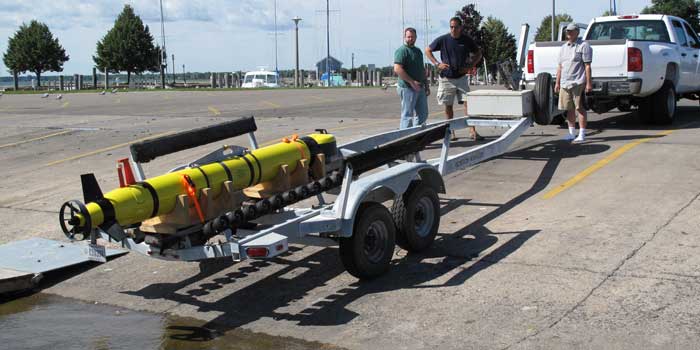
As senior science engineer at the Applied Research Lab, Dr. Loeffler leads underwater sonar design and development.
Who influenced you or encouraged you the most?
Probably, by far my father. My father always made us, being my brothers and I, help him do lots and lots of projects and he always pushed us to find jobs that would contribute to society. So that was probably the strongest influence. My graduate advisor pushed on me a lot to dig into the fundamentals of a variety of problems. And ultimately, I have some very close friends who told me to have fun along the way.
Do you travel often?
It varies from year to year. There have been a few years that I’ve been on dozens of different committees and we go to meetings, oh, I would say maybe 2 or 3 weeks out of the month, a few days each. Recently, I’ve traveled a few times a year but now, on longer trips like2, 4, 6-week-long sea tests.
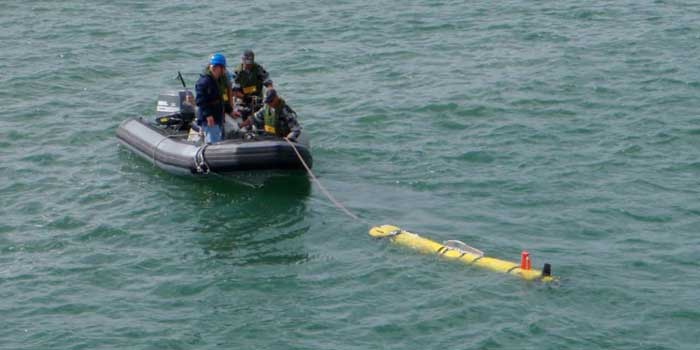
Dr. Loeffler talks about education and salary ranges for his type of work.
What are the educational requirements for your job?
For my specific job, actually, masters degree probably in science, engineering, math, you can do it with that. I really do use a lot of my doctoral education, various courses and the research I have did in this job to solve the problems.
What is the salary range for someone with your type of job?
That’s a tough one. As always, usually, the industrial jobs are often paid—positions are paid more and it appears they often shift into more managerial stuff. National labs like ours pay a little bit less but like my job, I get to stick in the science and math. If I had to guess, probably something just below 100K to maybe a little bit above to 200K a year, I’m sure it’s maybe even wider than that.
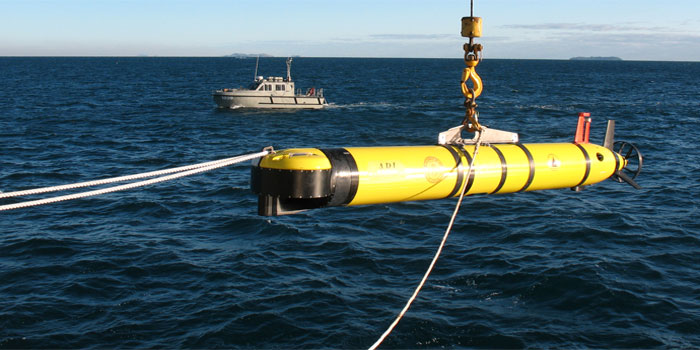
Dr. Loeffler and his team help solve the problem of finding things underwater...
How many hours do you work per week?
I work a lot. I’m probably in the office 40 to 60 hours a week but it turns out I’m always thinking about problems but that’s actually what I like to do. So there are many times I’m doing a little bit here and there at home, on travel, even while camping.
Tell us more about your research and the types of things you do.
We work on problems on how to find things underwater. So sometimes in my position somebody asks a very general question. For example, it might be possible that someplace like NOAA might be interested in finding old channel markers what’s the best way to do that? And maybe they have to search a very large area in a very cheap way, inexpensive way. And so someone will ask that question and myself and my colleagues will start thinking about that from many different viewpoints and we come up with a solution and propose it and maybe get to build it and test it out. And other times my work will dig way down into specific problems of math and engineering to solve, develop new algorithms to identify something in the water, or make part of our processing work much faster and more efficiently so we can fit into a small AUV.
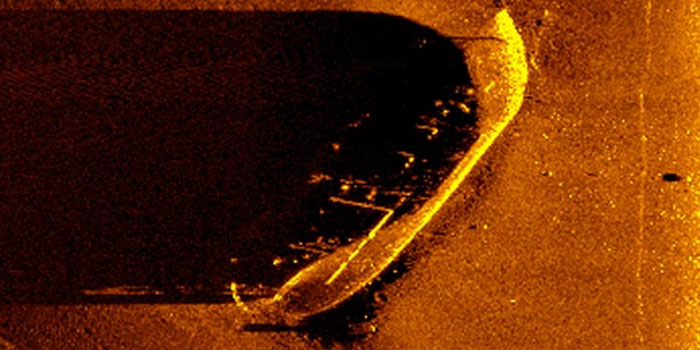
Fascinating work with strong personal rewards...
What is the most fascinating thing you have ever seen or done?
I am intrigued with the work in general but very recently this work with this sonar and this system has been wonderful in that every time we have gone some place, the maps we get back reveal sections of the sea floor or the lake floor that really probably, nobody has ever seen on this scale. So you stand there and you look and you wonder what is that thing you see? What is that clump of rock? Or we think maybe we’ve seen scrapings of glaciers out here and that’s somewhat mind-boggling to think about, actually.
What are the personal reward of your work?
My father wanted me to contribute to society and I think we are. Most of my work really is for the U.S. Navy and we right now send18-year-old men and women to do very dangerous things in this world. I think our lab is really contributing to making that job safer for them and quicker.
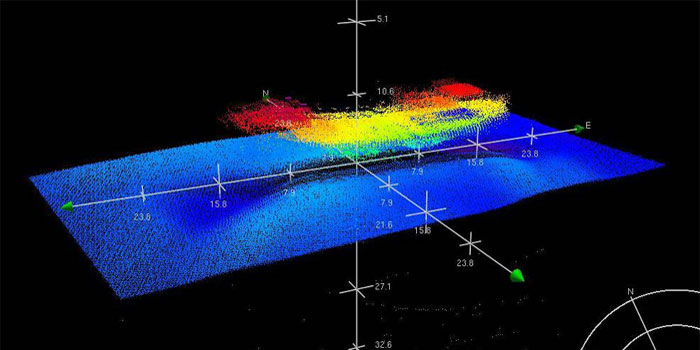
Words of Advice: work hard and learn everything you can!
What else could someone with your background do?
It’s really a lot of things. I’ve taught in the University, I suspect I could teach in private schools and high schools and junior high schools. Friends of mine have developed special real small blood pressure monitoring devices that people can carry on their body 24 hours a day. A group of my acquaintances actually designed the original Texas Instruments “Speak & Spell” which was one of the first electronic toys that talked. I have some friends that work analyzing stocks to help investors. I have a friend that changed and ran a kayak shop. So, really, the education is science-based and engineering-based and you can really apply a lot of different places.
Looking back, was there anything you would have done differently in your education or career journey?
No, I don’t think really—I was lucky to have the opportunities I had. I did work hard to get through many of them. If anything, there are times people tried to teach me some stuff that I ignored and wish I now knew them. And there are quite a few things that I wish I had practiced more and mastered them so I could apply them better today.
Return to profile